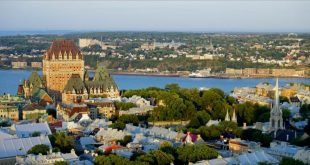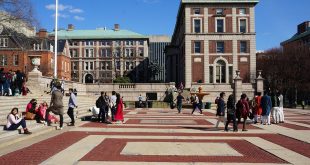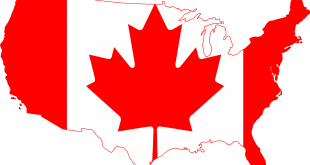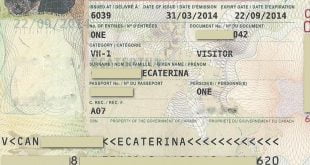What can I do as a medical student to enroll in a Canadian university? How can I fulfill my wish to study medicine in Canada?
The truth is that this field constitutes great competition among Canadian students, especially international students. This is due to the fact that the seats specified by the Canadian government are few.
Indeed, the project of studying medicine in Canada for them requires cooperation from its citizens or permanent residents with serious and accurate criteria.
As a matter of fact, Canada’s spending on medical universities, as well as the provincial tax fees it allocates, makes it difficult to enroll in it. Obviously, this is because of its accurate selectivity and future outlook for building healthy frameworks that absorb their costs and meet their needs.
But do not worry…
Moreover, there are always hopes within us that will help us with more diligence and the will to achieve our human goals. Indeed, the academic achievement needs to search for the best ways that contribute to building our cognitive needs.
Basically, Canada remains a distinctive destination for university education, and medicine, so get rid of any indolence and start over! Let’s start to get to know the specialty of medicine in Canada via this complete guide.
Table of Contents
How many years does it take to study medicine in Canada for international students?
The duration of the medical program in Canadian universities takes from three to five years, according to the specifics and requirements of each university.
First, in order to enroll in medical school in Canada, the student must have either a bachelor’s degree in biology or other related field or an undergraduate degree. From then on, the student will have to follow a preparatory year which will enable him/her to acquire a solid foundation in biology, human and social sciences.
Next are the pre-extern years (usually two years), during which students acquire basic skills and begin to be put into practice. Finally, the last two years are those of the externship, which consist mainly of hospital internships.
At the end of these 4 or 5 years, the new doctoral student must complete his or her residency. To do so, he or she must practice in a hospital setting, in general medicine or in specialized medicine between 2 and 5 years before he or she can legally practice medicine.
School System
All seventeen medical schools offer integrated study programs for the Medicine Doctor (MD) degree, which is the first professional diploma that a medicine specialty student can obtain in Canada. Each government, especially the governorate that hosts the college, determines the number of seats required to study in it according to its absorptive and financing capacity, as well as according to its future needs for health frameworks.
Although the student has the right to apply to more than one Canadian college, most of the admitted Canadian citizens or permanent residents belong to the province to which the college is affiliated to. Obviously, Canada’s medical education system, as already indicated in the introduction, allows international students to enroll in only some, but not all, of Canada’s universities.
Hence, we can now start to learn about the conditions of study for international students after we become familiar with the general conditions of selection. Obviously, there are some colleges that sign agreements with governments and international institutions to fill their seats when needed. At last, we invite you to contact the Ministry of Education in your country, in order to familiarize yourself with these opportunities.
Requirements to study medicine in Canada for international students
Language tests
Basically, accepted English language tests are: TOEFL, IELTS, MELAB, CAEL. Some individual schools may require other tests, however, you should check it early.
Learn more about IELTS test.
Afford the costs of studying
As a matter of fact, foreign students without permanent residence in Canada, are required to provide all costs related to the full medical education in order to proceed with the initial enrollment.
On the other hand, some medical schools in Canada may also require that the student not apply for post-doctoral training (resident doctor) in Canada. Besides that, the student returns to his country of origin to practice medicine.
Therefore, we invite you to well-investigate about the conditions of each university and every scholarship you want to receive
Learn more about the Cost of Studying and Living in Canada.
Visa application
As a matter of fact, an international student who wishes to study medicine in Canada also bears responsibility for owning a student visa that enables him to access the country.
As an illustration, all relevant considerations remain within the framework of the student’s research and inquiries through the Canadian embassy or consulate within his country of origin.
Learn more about obtaining a study visa in Canada
Stages of admission to medicine study in Canada
If the travel to Canada is possible and there is no legal consideration against it, we come to the candidacy stage for colleges and the criteria for admission to colleges, which differ from one college to another.
However, here we will discuss the general standards summarized in three steps:
Initial selection
As a matter of fact, most governorates require students who are candidates for at least two years of study before applying to it. They also must have undergone courses in basic sciences that qualify them to study medicine.
Next, the selection process begins, in which the student submits a Grade Point Average (GPA) of no less than 3.5 / 4.0. Please note that acceptable seat holders have a rating of about 3.80 / 4.0.
In the context of more attention to the type of students enrolled, colleges prefer that students present in the initial selection phase an article or chart outlining the candidate’s achievements, aspirations as well as accumulations that he/she achieved in developing his/her personality.
Moreover, it obliges the student to submit letters of notification signed by the institutions or organizations he studied or worked with, which show the extent of his ability to interact positively with issues and serious scientific involvement in the medical study path.
Furthermore, some medical schools in Canada also depend, after their initial selection, on the results of the MCAT admission test at Medical Universities Admission Test, or on the CASPer (Computer-Based Assessment for Sampling Personal Characteristics).
Acceptance tests
MCAT test
The MCAT is a transit pass for the rest of the selection stages in most Canadian medical schools. Basically, it is a standardized exam that includes multiple-choice questions, designed to assess how to solve problems, logic of reasoning, and writing skills.
The student is also assessed within this test in the prior knowledge and concepts he had which introduce him/her to the official university medicine program.
The test is divided into four sections:
- Each of these sections includes multiple-choice questions, which are graded from the lowest point, 1 to 15.
- Oral reasoning and inferring section
- Physical Sciences Department
- Department of Biological Sciences
Structural Editing Department: Students are tested by writing two essays, and are evaluated with grades from the lower J to the higher T.
CASPer test
An online exam with a duration of 90 minutes. Basically, it’s designed to identify the key to the character, as well as professional skills that qualify the student to succeed and graduate.
The test takes place in 12 stages, some of which are related to how to answer 3 questions in 5 minutes after watching a video and reading texts on a specific subject. Others are related to general questions to discover the ability to self-analyze.
Moreover, it should be noted that this test has become accredited by some medical schools, instead of the MCAT test.
Oral interview
There are two types of interviews that students undergo after the initial selection based on their candidacy file and passing the written test:
- The first type: the standard traditional interview
In which the candidate sits in front of a testing committee composed of distinguished professors and students, and some college staff members.
- The second type of interview: The multiple mini-interview (MMI):
It is a competition from six to ten short interviews that take place in stages. Each of them has different axes. Firstly, the candidate is tested in a series of questions. Only after success, he/she can pass to the next series of questions.
As a matter of fact, the MMI method of oral testing is prevalent in most Canadian medical schools. Also, it has found its way today to many medical schools in the rest of the world.
Best medical colleges in Canada
There are 17 universities in Canada that teach medicine of all kinds (medicine, dentistry, pharmacy, nursing …), but only 8 of them open their doors to international students to benefit from their program.
As an illustration, we classify it here according to its geographical location from east to west:
1) Memorial University
Basically, this university is located on the island of “Newfoundland”. Moreover, the years of study are limited to 4 years after its obligations to students to obtain a bachelor’s degree in one of the introductory science departments to medicine, and English language accreditation.
- GPA required: 3.85 / 4.0
- MCAT Pass: Yes.
- CASPer Pass: No.
- Interview type: MMI.
- Number of seats accepted in 2019/2020: 80.
2) Dalhousie University
The university is located in the province of “Novascotia”. The years of study are 4 years without requiring the submission of a bachelor’s degree, with accreditation of the English language.
- Required GPA: 3.86 / 4.0
- MCAT Pass: Yes.
- CASPer Pass: Yes.
- Interview type: MMI.
- The number of seats accepted in 2018/2019: 109.
Link to registration at Dalhousie University School of Medicine
3) Laval University
As a matter of fact, the University of Laval College of Medicine is located in the Canadian city of Quebec. The years of study are 4 to 5 years, depending on the university’s pre-capacity. It may require an integrated preparatory year.
Laval University also depends on its teaching program on the French language.
- Required GPA: Not available / not required.
- MCAT Pass: No.
- CASPer Pass: Yes.
- Interview type: MMI.
- The number of seats accepted in 2019/2020: 221.
Link to registration on the University of Laval College of Medicine website.
4) Sherbrooke University
The Faculty of Medicine and Health Sciences of the University of Sherbrooke is located in Quebec City and adopts the French language in its four-year teaching program.
Moreover, the candidate shall be obligated to provide the diploma of the preparatory departments accredited by the Ministry of Education in Quebec.
Basically, the city of Quebec has public institutions that represent preparatory departments for various scientific and technical disciplines, called “Collège d’enseignement général et professionnel” (CEGEP).
Obviously, the uniqueness of this university is that it depends on its primary selection on the first secondary and university academic results, without adopting the other types of grades and tests.
- Interview type: MMI.
- The number of seats accepted in 2018/2019: 199.
At last, for more information about the College of Medicine program and admission stages, visit this link on the Sherbrooke University website.
5) University of Montreal
The College of Medicine of the University of Montreal is located in the Canadian city of Montreal.
Moreover, it adopts the French language in its teaching of the initial medicine program, which ranges from 4 to 5 years depending on the student’s pre-knowledge.
This university does not commit the candidate to any test in its initial selection. Rather, it depends on the candidacy file and the student’s high school results, then its university results for the preparatory years to which he/she is committed.
- Interview type: MMI.
- The number of seats accepted in 2018/2019: 291.
Link to registration at the University of Montreal, to study at the Faculty of Medicine.
6) McGill University
Basically, McGill University School of Medicine is located in the Canadian city of Montreal. Both French and English are taught in the four-year program.
Likewise, the student is obliged to submit a preparatory year certificate prepared for the medical specialization.
As a matter of fact, the student is obligated through the mandatory admission criteria to present a CEGEP certificate which is introductory to medicine study in Canada: only if he or she wishes to pursue a program other than the MD program.
- Required GPA: 3.5 / 4.0
- MCAT Pass: Yes.
- CASPer Pass: Yes.
- Interview type: MMI.
- The number of seats accepted in 2018/2019: 179.
Link to registration at McGill University School of Medicine.
7) University of Toronto
The College of Medicine is located in Toronto, Ontario, Canada. The English language is taught in its four-year initial medicine program. Besides, it obligates the candidate to obtain a university degree in one of the fields introducing him/her to the field of medicine.
- Required GPA: 3.6 / 4.0
- MCAT Pass: Yes.
- CASPer Pass: No.
- Interview type: MMI.
- The number of seats accepted in 2018/2019: 259.
Indeed, Ontario Province is distinguished by the Ontario Medical Schools Application Service (OMSAS).
Basically, it receives and reviews requests, as well as receiving the initial registration fees that students pay at the initial registration. This service also announces the results of the various stages of selection and testing.
OMSAS service link for university registration and follow-up appointment.
8) McMaster University
This university is located in the county of Ontario, and it also accredits OMSAS service. Moreover, the McMaster University School of Medicine includes 3 years in the initial medicine program in English.
Besides, the candidate is obligated to provide an undergraduate certificate in one of the majors leading to medicine, at least three years.
- Required GPA: 3.0 / 4.0
- MCAT Pass: Yes.
- CASPer Pass: Yes.
- Interview type: MMI.
- The number of seats accepted in 2018/2019: 203.
There are 6 medical colleges at the Canadian University of Ontario, and international students can choose only between McMaster and Toronto.
How to register in a medical university in Canada
As previously mentioned in the previous sections, the registration and admission process begin in the medical universities in Canada by looking at the candidacy file that the student is obliged to present for the various open colleges within the specified deadlines.
You can maintain links to each site separately, and follow the nominations and then the admission stages. After the initial selection process, come the written, then oral tests.
The question now: How much does it cost to study medicine in Canada, after what we have seen of its stimulating advantages?
The costs of studying medicine in Canada
The costs of studying medicine in Canada, which students pay, are only a fraction of what the provinces and colleges’ governments spend. This is due to the expenses that the course and its careful training require.
These fees are associated with the type of program chosen to study medicine in Canada, the place of residence of the student. Then, in case he/she is a Canadian citizen or permanent resident, or a foreign student.
Likewise, it may differ from one level to another, and from one university to another.
Basically, the cost that the Canadian citizen student or permanent resident will pay is estimated at 16,798 Canadian dollars per year, while in Ontario the province may reach $27,304 / year.
As for foreign students, it may start from $27,379 at the University of Sherbrooke, and reach in the University of Toronto to $72,840 / year. This is according to Statistics of the Canadian Association of Colleges of Medicine for the year 2017.
Besides, there are other mandatory fees for all students, related to enrollment only, and ranging between $75 and $2208.
You may also be interested in learning about the cost of living in Canada
SCan I get a scholarship to study medicine in Canada?
As we have just seen, international students are required to pay high fees to study medicine in Canada. However, be aware that some scholarships cover almost all the tuition fees. These include the following:
Canada Scholarship Program
Basically, the candidate nomination phase starts from January to March 2020.
Link to the information necessary to prepare the candidacy file: Canada Scholarship Program.
Vanier Canada Graduate Scholarship
This scholarship aims to attract distinguished students from Canada or elsewhere, to pursue a PhD in one of its university institutions.
On the other hand, for the admission criteria, they are associated with three basic determinants: university excellence, research capacity, and communication and leadership competencies.
Find more information about the Vanier Scholarship.
Find out about other scholarships in Canada
Read also about how to study in Canada at the lowest costs
Work as a doctor after graduation in Canada
Basically, becoming a doctor in Canada means ensuring comfortable living, great pay, and a guaranteed career path. Basically, what the doctor earns per year is approximately $339,000, according to data from the Canadian Qbank Blog.
However, this depends on your availability for permanent residency in one of the Canadian provinces, as long as you are a foreign student.
Then, the requirements for you to work as a doctor in Canada are:
- After obtaining a bachelor’s degree, preparatory departments, or their equivalent (according to the university’s request, as mentioned above), in one of the academic specialties leading to the field of medicine. Moreover, this is done at a university accredited by Canada.
- After admission to a Canadian medical college open to international students, as well as obtaining a medical degree after four years of study and training.
- Pass the placement test as a doctor in Canada, called (Medical Council of Canada Evaluating Examination MCCEE). Indeed, it is one of the most difficult tests in the world. And the test focuses on the graduate’s various knowledge areas as well as in capabilities necessary for the profession.
- Enroll in the Professional Experience Training Program, in which Canada binds its new doctors before any step that will be taken in independent work. (Two years after the General Medicine or Family Medicine Certificate, and 6 years after the Specialty Certificate).
Read also how to work in Canada after Graduation
Conclusion
At last, to think about choosing the path of medicine means that you think about a field that acts as a humanitarian project to save human health. As a matter of fact, it needs patience and sacrifice.
Furthermore, it means striving to find the best way to study and to acquire the skills necessary for the profession.
Indeed, medicine is definitely worth it!
If you are looking for studying medicine in Canada and have questions, contact us via the comments section below.




 Aljawaz Your guide to study abroad
Aljawaz Your guide to study abroad

























Can i study MEDICINE and SURGERY in Canada on scholarship by applying with high school certificate in science?,i’m not having a related university degree certificate.
Hi Babbel,
Please refer to those articles to know everything about applying to universities in Canada and sponsorships.
Good luck
Hi! I am currently a pre-medical student in one of the best universities in the Philippines. Is it possible for me to study medicine in Canada with a scholarship? My course is Medical Technology and it is a 4 year undergraduate course.
Hi Sunny,
To study in Canada you need to go through an equivalence precess.
I advise you to contact directly the chosen university to get more information.
Best Regards
Respectfully Hello
I am a diploma student in science major. I would like to continue my studies there as a Medicine Doctorate. Do me a favor if you (help me,tell me how can I apply and what are the documentaries).
Hi Mehrdad,
To study medicine in Canada you will need to pass language tests, proof that you can afford the expenses, and get a student visa.
Also, the majority of universities ask for your birthday certification and Your academic grades, but you should consult the university website to know exactly the documents required.
Good luck.
Thank you for this beautiful explanation. I’m a permanent resident and a graduate of Biochemistry. I also have a masters degree in public health from England and would love to study medicine in Canada. How feasible is it to gain admission into medical school for me
Hi Femi,
It would be better to contact directly one of the medical universities to ask about your specific case.
All the best
Hi, I have a bachelor of medical laboratory science from Iran and my gpa is 3.4 . I want to get pr and then study medicine. my question is that will medical universities in Canada accept my bachelor degree as a undergraduate degree or I have to study from the beginning?
Hi Delaram,
Normally there is an equivalency system that you need to submit for.
Good luck
What can I do if I graduate in another country (Colombia) and want to move to Canada to study a speciality?
Hello,
There is an equivalency system, and you need to check if you are eligible for that.
I advise you to contact directly the chosen university to check.
Good luck